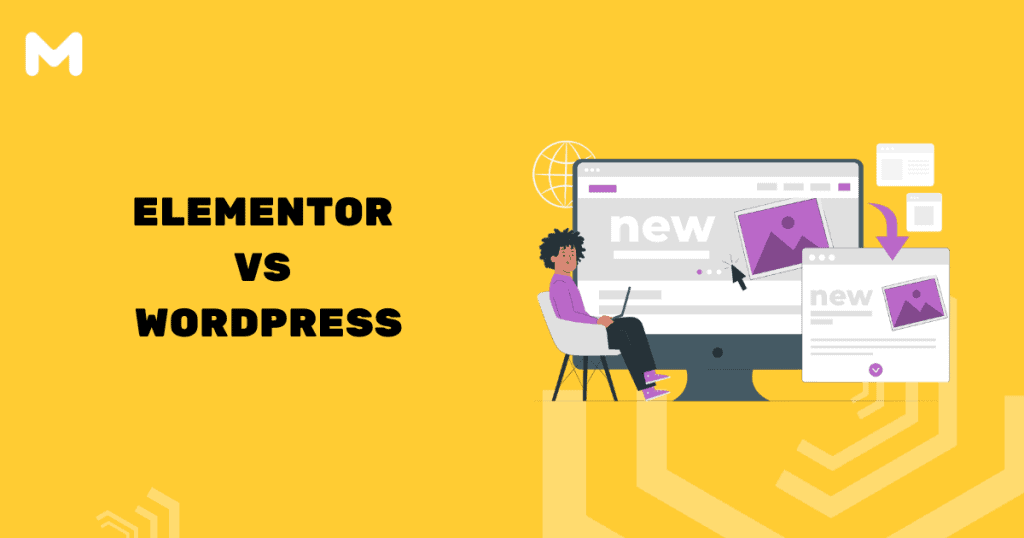WordPress has been one of the most popular Content Management Systems (CMS) for over a decade now. It offers users a simple, flexible, and customizable platform for creating websites. However, with the rise of drag-and-drop page builders, it’s important to take a closer look at the advantages and disadvantages of using WordPress in conjunction with a page builder like Elementor. In this article, we’ll compare Elementor vs. WordPress, highlighting the pros and cons of each platform.
Pros of Elementor:
- User-Friendly Interface: Elementor is a drag-and-drop page builder that offers a user-friendly interface for creating beautiful web pages. It has a simple and intuitive interface, which makes it easy for beginners to use.
- Customization: Elementor offers a high level of customization to users. It has a vast library of templates and widgets that can be used to customize web pages. Elementor also allows users to create their own templates and save them for later use.
- Time-Saving: With Elementor, you can create a professional-looking website quickly and easily. It eliminates the need for coding and allows you to complete the task in less time.
Cons of Elementor:
- Cost: Elementor is a paid plugin, and the cost can add up if you are running multiple websites. While there is a free version of Elementor, the paid version offers more features and capabilities.
- Performance: Elementor can slow down the performance of your website, especially if you use too many widgets or templates. This can have a negative impact on user experience, and potentially hurt your search engine rankings.
- Dependency: Elementor is a plugin that is dependent on WordPress. If you switch to a different platform or CMS, you may lose the ability to use Elementor.
Pros of WordPress:
- Flexibility: WordPress is an open-source platform, which means it’s flexible and can be customized to fit your specific needs. There are thousands of plugins and themes available that can enhance the functionality and appearance of your website.
- SEO Friendly: WordPress is optimized for search engines, making it easier for your website to rank higher in search results. There are also many SEO plugins available for WordPress, such as Yoast SEO, which can help you optimize your content.
- Community Support: WordPress has a large and active community of developers and users. This means there are plenty of resources available, including forums, tutorials, and plugins, to help you with any issues or questions you may have.
Cons of WordPress:
- Complexity: While WordPress is flexible, it can also be complex and difficult to use for beginners. There is a learning curve, especially when it comes to customizing themes and plugins.
- Security: WordPress sites are often targeted by hackers, which can lead to security issues. It’s important to keep your WordPress site up-to-date with the latest security patches and use a reliable security plugin.
- Maintenance: WordPress requires regular maintenance, including updates to plugins, themes, and the core software. Failure to keep your site updated can lead to security vulnerabilities and other issues.
Our Take:
In conclusion, both Elementor and WordPress have their own advantages and disadvantages. Elementor is great for users who want a user-friendly interface and a high level of customization, but it can be costly and slow down website performance. WordPress is flexible, SEO-friendly, and has a large community of support, but it can be complex and require regular maintenance. Ultimately, the choice between Elementor and WordPress depends on your specific needs and preferences. It’s important to consider all factors before making a decision.


